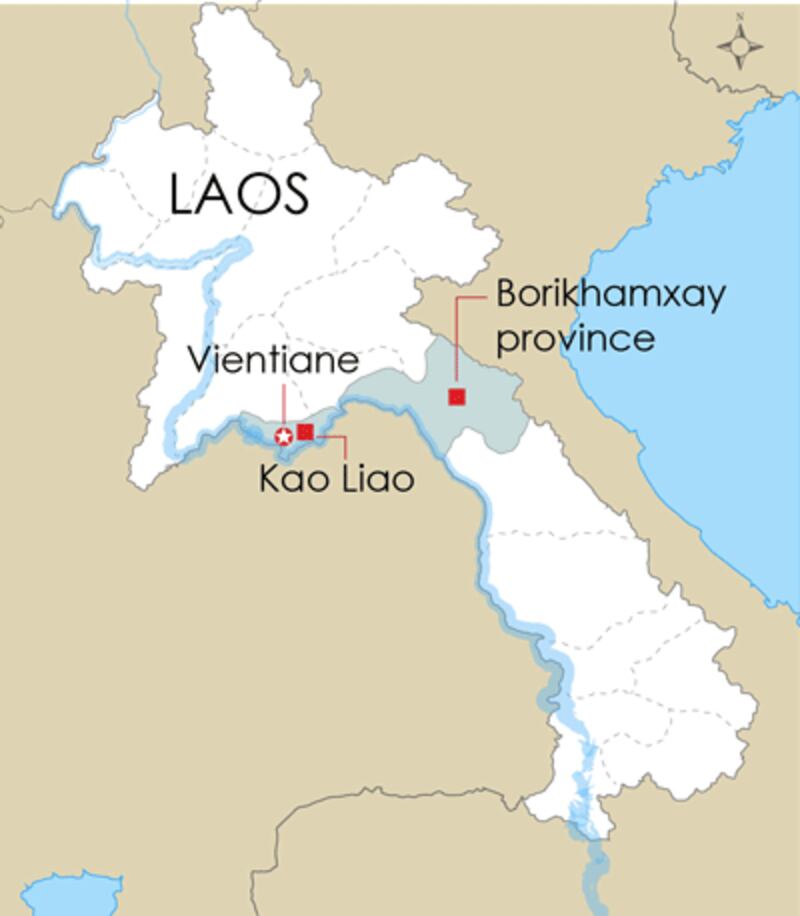Authorities in Laos have shut down a farm in the outskirts of the capital where bears had been held captive for extraction of bile, a hotly traded commodity.
An unknown number of bears have been seized from the farm but the owner, a Vietnamese, has bolted, officials said, adding that he would have to be prosecuted in court.
The authorities raided the farm in Kao Liao village north of the capital Vientiane on Thursday, a day after RFA reported that Lao officials had turned a blind eye to the facility, believed to be illegal.
Bear bile trade is thriving in Laos though the animal is protected under the law. The trafficking of bile-based traditional medicine is a key threat to Asia’s bears, partly because of poaching, environmental groups say.
"The farm owner right now has just vanished, we cannot find him," an official of the Ministry of Agriculture and Forestry said.
"The government of Laos, with the cooperation of an NGO (nongovernmental organization) will send the bears to [a wildlife sanctuary] in Borikhamxay province," the official said.
The Lao authorities are planning to build a wildlife rehabilitation center in Borikhamxay costing U.S. $700,000, the official said.
Medicinal value?

Bear bile, a liquid produced in the liver and stored in the gall bladder to aid in digestion, is used in traditional Chinese medicine to counter “internal heat,” but is prescribed for a variety of ailments and diseases, including cancer.
Bile is usually extracted twice a day from a bear’s gall bladder through an implanted tube or collected via a free flowing drip method in which a wound is kept permanently open in a bear’s abdomen.
To facilitate the extraction process, bears are commonly kept in “crush” cages which are so small that they prevent the bear from being able to stand up, or in some cases to move at all.
While an acid found in bear bile has been proven to aid in the treatment of gall stones, the same substance can be reproduced chemically in a laboratory. Bear bile has no other scientifically proven uses in the field of medicine.
And yet, one milliliter of bear bile, or roughly a third of a teaspoon, can sell for 120,000 kip (U.S. $15)—a hefty price for Laotians who earn an average salary of just 240,000 kip (U.S. $30) per month.
The Lao official said the government will publish data providing full scientific details of bear bile for the public to dispel any unfounded information about their medicinal value.
Trade laws
According to TRAFFIC, a wildlife trade monitoring network, the trade of parts and derivatives from second-generation captive-bred bears is permitted in Laos under the Wildlife and Aquatic Law with proper approval.
This law defines products as “extracted parts of wildlife and aquatic life for producing items like medicine for healing illness, ornamental, and other utilization purposes.”
But TRAFFIC notes that as bears are protected in the country, obtaining parent stock from the wild is illegal.
TRAFFIC also recommends amending current legislation to close these loopholes and to more fully protect wildlife.
According to the World Society for the Protection of Animals, more than 12,000 bears are currently estimated to be housed in both illegal and legal bear farms across Asia.
Reported by RFA's Lao Service. Translated by Viengsay Luangkhot. Written in English by Parameswaran Ponnudurai and Joshua Lipes.
